You might be better off using a Trie. A Trie is better suited to finding partial matches (i.e. as you search through the text of a paragraph) that are potentially what you're looking for, as opposed to making a bunch of calls to a dictionary that will mostly fail.
The reason why I think a Trie (or some variation) is appropriate is because it's built to do exactly what you're trying to do:

If you use this (or some modification that has the tokenized words at each node instead of a letter), this would be the most efficient (at least that I know of) in terms of storage and retrieval; Storage because instead of storing the word "The" a couple thousand times in each Dict entry that has that word in the title (as is the case with movie titles), it would be stored once in one of the nodes right under the root. The next word, "Shawshank" would be in a child node, and then "redemption" would be in the next, with a total of 3 lookups; then you would move to the next phrase. If it fails, i.e. the phrase is only "The Shawshank Looper", then you fail after the same 3 lookups, and you move to the failed word, Looper (which as it happens, would also be a child node under the root, and you get a hit. This solution works assuming you're reading a paragraph without mashup movie names).
Using a hash table, you're going to have to split all the words, check the first word, and then while there's no match, keep appending words and checking if THAT phrase is in the dictionary, until you get a hit, or you reach the end of the paragraph. So if you hit a paragraph with no movie titles, you would have as many lookups as there are words in the paragraph.
